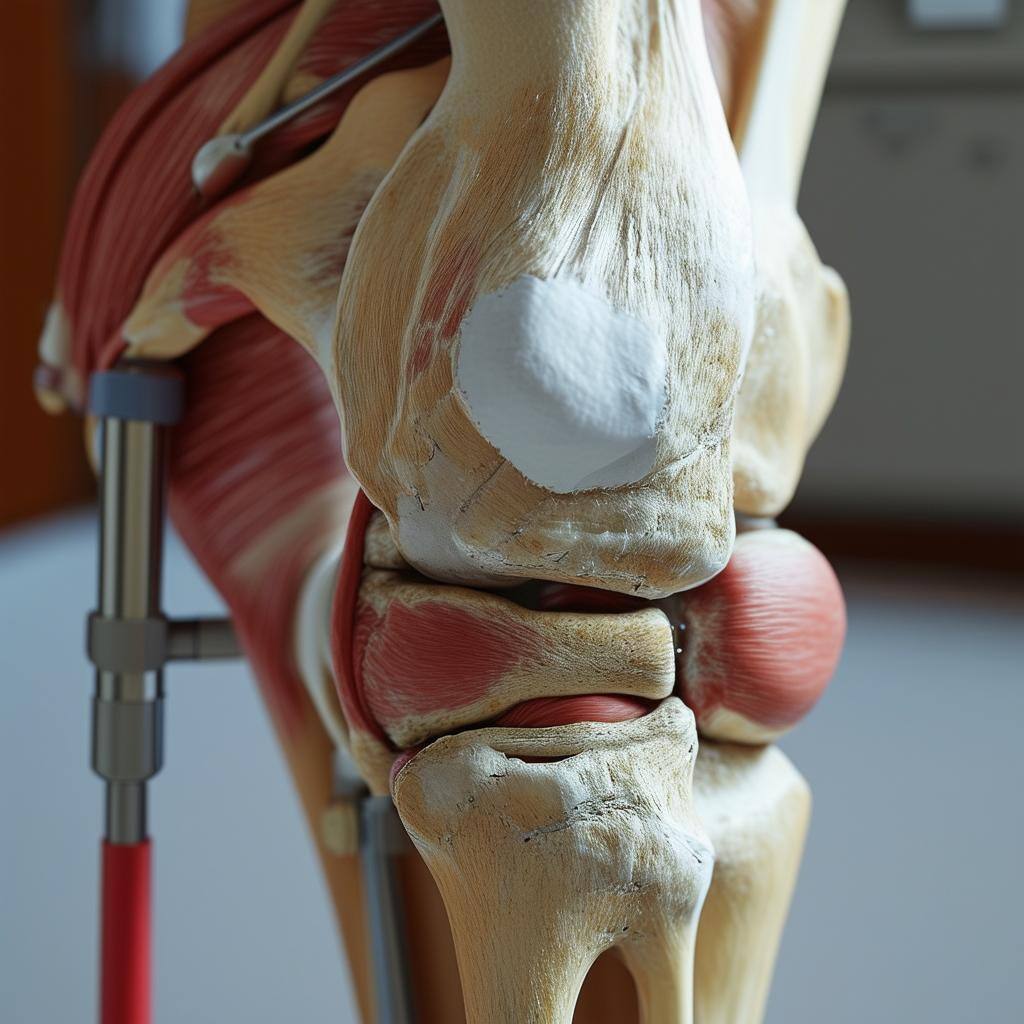
Introduction to Shoulder Pain
Shoulder pain is a common issue that many people experience at some point in their lives. It can range from a mild discomfort to severe pain, affecting daily activities and overall quality of life.
Prevalence and Common Causes
- Prevalence: Shoulder pain affects millions of individuals worldwide, with both acute and chronic cases frequently reported.
- Common Causes:
- Injuries: Such as fractures, dislocations, or rotator cuff tears.
- Overuse: Repetitive motions in sports or work-related activities.
- Aging: Conditions like arthritis or tendon degeneration.
Importance of Seeking Medical Advice
Ignoring shoulder pain can lead to worsening conditions and complications. Early consultation with an orthopedic doctor ensures proper diagnosis and treatment, preventing long-term damage. For more insights on related orthopedic treatments, you might find our article on how an orthopedic doctor treats hand pain informative.
Understanding these aspects underscores the importance of being proactive about shoulder health.
When to See an Orthopedic Doctor
Knowing when to see an orthopedic doctor is important for managing and treating shoulder pain effectively. Waiting too long to get medical advice can make the condition worse and require more complicated treatments.
Why You Should See an Orthopedic Doctor
It's a good idea to see an orthopedic doctor or a shoulder specialist when you have symptoms that disrupt your daily life or suggest a serious underlying condition. These doctors are trained to diagnose and treat problems with bones, joints, and muscles, including those affecting the shoulder.
Why Acting Quickly Matters
Getting treatment early can prevent further damage and improve recovery outcomes. Ignoring ongoing or severe symptoms could lead to chronic pain, limited movement, and possibly the need for more invasive treatments.
Signs You Should See a Doctor
Here are some signs that indicate it's time to see a professional:
- Pain Lasting Longer Than Two WeeksIf shoulder pain doesn't go away after two weeks of self-care measures like rest and over-the-counter medications, consulting a specialist can help determine the cause and appropriate treatment.
- Severe Pain, Numbness, or Weakness in the ArmExperiencing intense pain, numbness, or muscle weakness that radiates down the arm may signal nerve involvement or severe injury. Prompt medical attention is crucial.
- Visible Swelling or Deformity Around the ShoulderNoticeable swelling, bruising, or any deformity around the shoulder joint should prompt immediate consultation as these signs could indicate fractures, dislocations, or other serious conditions.
- Difficulty Performing Daily Activities Due to PainStruggles with everyday tasks such as dressing, lifting objects, or even combing hair due to shoulder pain suggest it’s time for expert evaluation and intervention.
- Sleep Disruption Caused by Shoulder DiscomfortDifficulty sleeping because of shoulder discomfort affects overall health and quality of life. An orthopedic doctor can help identify the cause and recommend solutions.
- Snapping or Popping Sounds During MovementHearing clicking, snapping, or popping noises during shoulder movement might indicate issues like rotator cuff tears or labral injuries. These symptoms necessitate professional assessment.
For those looking for specialists nearby, resources like Top Doc can connect you with highly qualified doctors in your area.
Addressing these signs early with an orthopedic specialist ensures proper diagnosis and treatment pathways tailored to individual needs. This proactive approach can significantly improve outcomes and reduce the risk of long-term complications.
Common Conditions Associated with Shoulder Pain
Shoulder pain can stem from various disorders, each with unique symptoms and treatment options. Here are some common conditions:
1. Arthritis: Types and Symptoms
Arthritis is a leading cause of shoulder pain. There are several types:
- Osteoarthritis: Often linked to aging, it causes cartilage breakdown.
- Rheumatoid Arthritis: An autoimmune disorder causing joint inflammation.
Symptoms include:
- Persistent pain
- Swelling
- Reduced range of motion
2. Frozen Shoulder: Causes and Treatment Options
Frozen shoulder, or adhesive capsulitis, restricts movement in the shoulder joint due to stiffness and pain.
- Causes: Often arises after not using the shoulder for a while, like after surgery or an injury.
- Treatment Options: Physical therapy, anti-inflammatory medications, and corticosteroid injections.
3. Rotator Cuff Tears: Signs and Management
Rotator cuff tears involve damage to the muscles and tendons surrounding the shoulder joint.
- Signs:
- Pain at rest and during activities
- Weakness in the arm
- Difficulty lifting objects
Management may include:
- Physical therapy
- Anti-inflammatory medications
- Surgical repair in severe cases
Top Doc - Provider Terms of Use
4. Tendonitis: Understanding the Condition
Tendonitis occurs when the tendons in the shoulder become irritated or inflamed.
- Causes: Repetitive motion or overuse.
- Symptoms:
- Pain that worsens with activity
- Swelling
Treatment often involves rest, ice application, and physical therapy.
5. Bursitis: Symptoms and Treatment Approaches
Bursitis affects the bursae – small fluid-filled sacs that cushion bones.
- Symptoms:
- Swelling
- Tenderness
- Pain during movement
Treatment approaches include rest, ice, corticosteroid injections, and physical therapy.
6. Impingement Syndrome: Causes and Effects
Impingement syndrome happens when shoulder blade exert pressure on underlying soft tissues during arm lifting movements.
- Causes:
- Bone spurs
- Inflammation of the rotator cuff
Effects may lead to chronic pain and reduced mobility. Treatment includes physical therapy, anti-inflammatory medications, and sometimes surgery.
Understanding these conditions helps identify when professional intervention is necessary for effective management of shoulder pain.
Evaluation Process by an Orthopedic Specialist
The evaluation process for shoulder pain is crucial to determine the appropriate treatment plan. An orthopedic specialist conducts a thorough examination that includes several key steps.
Importance of a Comprehensive Evaluation
A detailed evaluation helps identify the root cause of shoulder pain and ensures a tailored treatment approach. This comprehensive assessment is essential for accurate diagnosis and effective management.
Medical History Review
The orthopedic doctor starts with a review of the patient's medical history. This step involves:
- Discussing previous injuries or surgeries
- Understanding current symptoms and their duration
- Identifying any underlying health conditions such as arthritis
Physical Assessments and Tests
Physical assessments are conducted to evaluate the range of motion, strength, and function of the shoulder. These tests may include:
- Palpation: Feeling the shoulder area for tenderness or abnormalities
- Range of Motion Tests: Checking how far you can move your arm in different directions
- Strength Tests: Measuring muscle strength around the shoulder joint
Imaging Studies
To gain deeper insights into the condition, imaging studies might be necessary. Common imaging techniques include:
- X-rays: Useful for detecting bone abnormalities or fractures.
- MRI (Magnetic Resonance Imaging): Provides detailed images of soft tissues like tendons and ligaments.
By combining these methods, an orthopedic specialist can accurately diagnose the issue and recommend suitable treatments.
Treatment Options for Shoulder Pain
Overview of Conservative Treatments
For many individuals, conservative treatments can effectively manage shoulder pain:
- Rest: Allowing the shoulder to rest and avoiding activities that exacerbate the pain can significantly aid the healing process.
- Ice: Applying ice packs to the affected area helps reduce inflammation and numb sharp pain.
- Medication: Over-the-counter pain relievers and anti-inflammatory medications, such as ibuprofen or acetaminophen, can alleviate discomfort.
Role of Physical Therapy in Rehabilitation and Recovery
Physical therapy plays a crucial role in shoulder pain management. Therapists design specific exercise programs to:
- Strengthen muscles: Targeting muscles around the shoulder improves stability and function.
- Enhance flexibility: Stretching exercises restore the range of motion.
- Prevent future injuries: Educating patients on proper techniques and postures to avoid re-injury.
When Surgery Becomes Necessary
In some cases, conservative treatments may not be sufficient. Surgical options include:
- Arthroscopic Surgery: Minimally invasive procedure to repair or remove damaged tissue. This might be necessary for conditions like rotator cuff tears or impingement syndrome.
- Shoulder Replacement: Recommended for severe arthritis or significant joint damage. This involves replacing damaged parts of the shoulder with artificial components.
Link opportunity: Knee Replacement Surgery Procedure provides insights into surgical procedures that might also apply to shoulder replacements.
Importance of Follow-Up Care After Treatment
Post-treatment care is essential to ensure successful recovery:
- Regular Check-Ups: Monitoring progress and adjusting treatment plans as needed.
- Rehabilitation Programs: Continuing physical therapy exercises at home or under supervision.
- Lifestyle Adjustments: Incorporating ergonomic practices and mindful movements into daily routines to maintain shoulder health.
Proper follow-up care helps prevent recurrence of pain and supports long-term recovery.
Finding a Shoulder Specialist Near You
Searching for a shoulder specialist near me involves several steps:
- Local Search: Use online tools like Google Maps or healthcare directories to find orthopedic doctors in your area.
- Check Credentials: Ensure the doctor is board-certified and has specialized training in shoulder conditions.
- Read Reviews: Look at patient reviews on platforms like Healthgrades or Yelp to gauge the doctor's reputation.
Taking these steps helps you find a qualified professional who can provide the best care for your shoulder pain.
Conclusion
Knowing when to see a doctor for shoulder pain is important for effective treatment. If you experience any of the following signs, it's time to seek medical advice:
- Pain that lasts longer than two weeks
- Severe discomfort or numbness
- Noticeable swelling or deformity
For those experiencing:
- Difficulty with daily activities because of shoulder pain
- Sleep disturbances due to shoulder discomfort
- Snapping or popping sounds when moving your shoulder
It's crucial to consult an orthopedic specialist.
Don't ignore ongoing problems. Getting professional help guarantees proper assessment and treatment, which can stop further issues and enhance your quality of life.
FAQs (Frequently Asked Questions)
What are the common causes of shoulder pain?
Shoulder pain can arise from various issues, including arthritis, rotator cuff tears, tendonitis, bursitis, and impingement syndrome. Understanding these conditions is essential for effective treatment.
When should I see an orthopedic doctor for shoulder pain?
You should consult an orthopedic doctor if you experience persistent pain lasting longer than two weeks, severe pain accompanied by numbness or weakness in the arm, visible swelling or deformity around the shoulder, difficulty performing daily activities due to pain, sleep disruption from shoulder discomfort, or snapping or popping sounds during movement.
What is the evaluation process when visiting an orthopedic specialist?
The evaluation process typically involves a comprehensive review of your medical history by the orthopedic doctor, followed by physical assessments and tests. Imaging studies such as X-rays or MRIs may also be necessary to accurately diagnose the issue.
What treatment options are available for shoulder pain?
Treatment options include conservative approaches such as rest, ice application, and medication. Physical therapy plays a crucial role in rehabilitation and recovery. In some cases, surgical interventions like arthroscopic surgery or shoulder replacement may be required.
How can I find a qualified shoulder specialist near me?
To find a qualified shoulder specialist in your area, search online for local orthopedic doctors. It is vital to check their credentials and read reviews from previous patients to ensure you choose a reputable specialist.
Why is it important to seek medical advice for shoulder pain?
Seeking medical advice is crucial because timely intervention can prevent further complications and improve recovery outcomes. Ignoring persistent shoulder issues may lead to chronic pain or more severe conditions that require extensive treatment.


Comments (0)